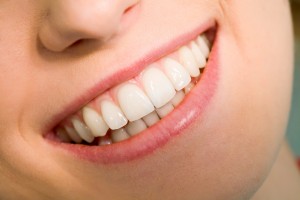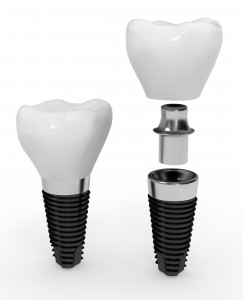Advanced Risk Factors for Cavities
July 29, 2013
 You already know that it takes regular brushing and flossing plus good nutrition and regular checkups, to defend your smile from cavities. But oral care and nutrition are only two risk factors you should be aware of in having a cavity-free smile. In today’s post, we’d like to highlight a few more risk factors that you might not even be aware of. If you have questions about any of them, don’t hesitate to give Randolph Dental Care a call.
You already know that it takes regular brushing and flossing plus good nutrition and regular checkups, to defend your smile from cavities. But oral care and nutrition are only two risk factors you should be aware of in having a cavity-free smile. In today’s post, we’d like to highlight a few more risk factors that you might not even be aware of. If you have questions about any of them, don’t hesitate to give Randolph Dental Care a call.
Existing decay
Did you realize that having cavities in the past makes you more vulnerable to having cavities in the future? That’s because decay weakens the protective layer of enamel on the outside of our teeth. To protect your smile, treat cavities early, before they have a chance to become more developed. You should also make sure you’re getting enough fluoride, which attract minerals important for having healthy teeth.
Family history
Some patients grew up in a home where good oral hygiene wasn’t a priority. But we’re not just talking about poor oral hygiene when we talk about family history. Some patients are more vulnerable to cavities because of heredity. If you’ve noticed a pattern of cavities in your family, make sure you’re brushing and flossing regularly, and that you’re visiting Dr. Goldstein a minimum of twice a year.
Dry mouth
Among the different things that saliva does, one is flush bacteria out of your mouth. Another is that it helps neutralize acid, which can harm tooth enamel. In cases of dry mouth, teeth are more vulnerable because there’s nothing to get rid of bacteria or take care of the acid. That’s why, if you struggle with dry mouth, it’s important to drink water throughout the day, so that your mouth stays moist. Xylitol mints or gum may also help.
Do you have questions about any of these risk factors, or do you need to schedule an appointment with Dr. Goldstein? Call Randolph Dental Care today. We serve patients from Randolph, Rockaway, Mendham, Chester, Morristown, Denville, Morris County, and surrounding areas.
Four Causes of Tooth Sensitivity
July 16, 2013
 Tooth sensitivity is a common complaint of dental patients, but there’s no single cause. In today’s post, we’ll detail some of the most common culprits and explain how treatment or prevention might be possible.
Tooth sensitivity is a common complaint of dental patients, but there’s no single cause. In today’s post, we’ll detail some of the most common culprits and explain how treatment or prevention might be possible.
Aggressive Brushing
One part of achieving a healthy smile is brushing on a regular basis, but there’s a difference between brushing thoroughly and brushing aggressively. Patients who brush too hard with a hard-bristled brush can damage their teeth and gums, causing sensitivity. To prevent sensitivity caused by aggressive brushing, don’t be afraid to ask Dr. Goldstein of Randolph Dental Care for brushing tips. We’re dedicated to educating our patients and helping them achieve effective daily care.
Teeth Grinding
The medical term to describe a teeth grinding problem is bruxism. Patients who struggle with bruxism grind their teeth unconsciously, often while asleep. Bruxism is triggered by stress and the affliction can seriously damage teeth. Under the right conditions, teeth can even become cracked, making it possible for bacteria to get inside a tooth and exposing the porous layer of dentin beneath the outer layer of enamel. If you struggle with teeth grinding, talk to Dr. Goldstein. Bruxism can be effectively treated with a custom-made night guard.
Gum Recession/Gum Disease
Gum recession is one of the most common causes of sensitivity, which itself is caused by advanced gum disease. As the gums recede, more of the patient’s teeth are exposed, including that crucial layer of dentin. Things that are hot, cold, or acidic can send shockwaves through the dentin to the inner pulp, or the nerve of the tooth. To prevent sensitivity caused by gum recession, see Dr. Goldstein for periodontal therapy at the first sign of gum disease. Treating gum disease early will help you preserve your oral health and protect against sensitivity.
Age
Patients between the ages of 25 and 30 experience more sensitivity than patients of other ages. If you’re in your mid-twenties and have noticed any changes in how sensitive your teeth are, Dr. Goldstein may be able to help.
Do you struggle with tooth sensitivity on a daily basis? Call Randolph Dental Care to set up an appointment with us. Dr. Goldstein serves patients from Randolph, Rockaway, Mendham, Chester, Morristown, Denville, Morris County, and beyond with excellent general, cosmetic, and restorative care.
The History of Dental Implants
July 2, 2013
 We think of dental implants as a modern solution to missing teeth—and for dental implants as they are now, that’s true. But there’s also evidence to show that, throughout history, people have been bridging gaps in their smiles with a wide variety of materials.
We think of dental implants as a modern solution to missing teeth—and for dental implants as they are now, that’s true. But there’s also evidence to show that, throughout history, people have been bridging gaps in their smiles with a wide variety of materials.
Some of the earliest evidence includes a 1,300 year-old mandible found among Mayan ruins. Specially shaped shells had been implanted into the jaw to replace missing teeth.
Evidence from ancient Rome and ancient Egypt has also been found. In the case of Rome, a cast-iron implant was found in the jaw of a Roman soldier, while it’s believed that gold wires were used by Egyptians. Other materials that have been used throughout history include ox bone, semi-precious stones, copper, ivory, and rubber.
The first contemporary implant was placed in 1965. Through a test with titanium and a rabbit femur, the scientist Per-Ingvar Brånemark discovered that titanium could form a bond with bone tissue, which led to the placement of the first implant in a human skull.
Today, dentists like Dr. Goldstein of Randolph Dental Care are restoring smiles with dental implants on a regular basis. Dental implants mimic the natural structure of teeth with a crown on top and an implant, which acts as a prosthetic root, underneath. They’re versatile enough to replace a single tooth, multiple ones, or even an entire row. Best of all, Dr. Goldstein’s Randolph dental patients can have both stages of an implant procedure completed right in our office.
Are dental implants the right restorative service for you? During a consultation at Randolph Dental Care, Dr. Goldstein will talk to you about the dental implant process and recommend a personalized treatment plan, whether it involves dental implants or another service entirely.
Call us today to reserve your appointment. We serve patients from Randolph, Rockaway, Mendham, Chester, Morristown, Denville, Morris County, and beyond.









